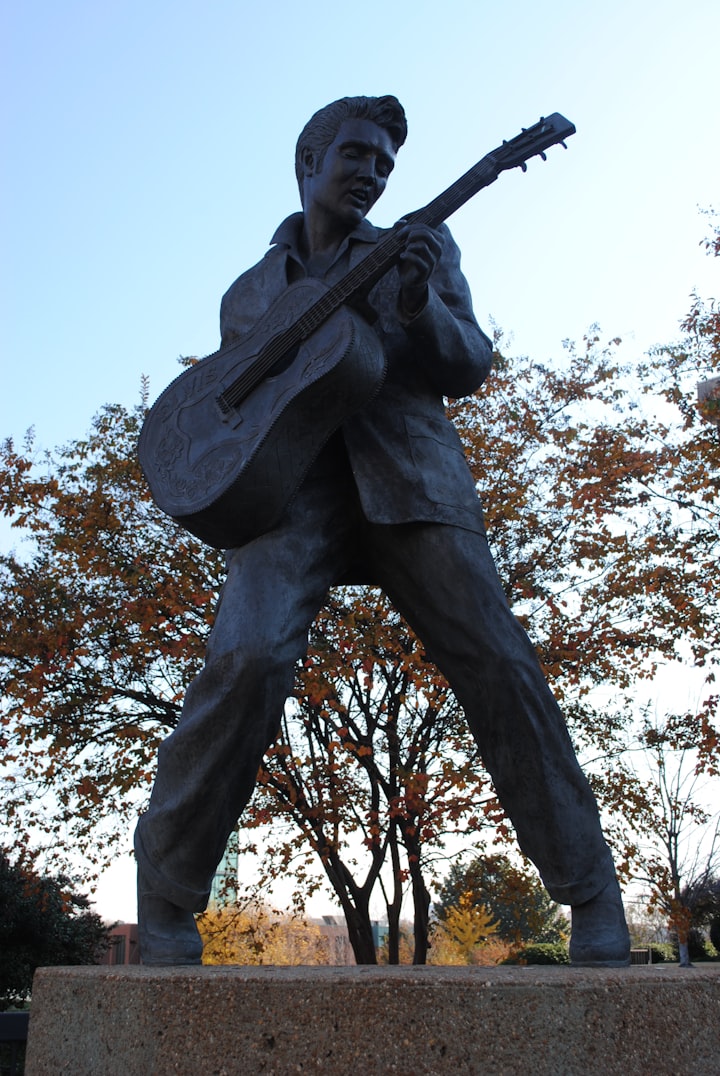The Case Against Elvis In Royalty Row
You Decide

In response to a story with the headline 'Elvis didn't "steal" a darn thing from Arthur Crudup', I offer up the following series of events that prove that Elvis did indeed gain financially from Arthur Crudup's royalties, very much to the financial detriment of Arthur Crudup.
1. Arthur Crudup accepted record label talent scout Lester Melrose as his manager.
2. Lester Melrose offered Arthur a contract with his publishing outfit, Wabash Music Publishing Company, promising Arthur 35 percent of all royalties from his compositions.
3. Lester never registered Arthur as a songwriter with ASCAP or any other royalty-collecting agency.
4. Lester only ever paid Arthur a very modest initial recording fee followed by very occasional cheques for ten or fifteen dollars, only if Arthur complained.
5. Elvis Presley recorded three of Arthur's songs, including the big hit That's All Right Moma.
6. Lester was receiving all royalties due for Arthur's songs, including publishing and songwriter royalties.
7. Lester sold his publishing company, Wabash to Hill and Range Publishing and retired to Florida a very rich man.
8. The sale of Wabash to Hill and Range included the copyrights for all of Arthur's songs.
9. Hill and Range was set up by two brothers, Julian and Jean Aberbach.
10. In 1955, the Aberbachs were responsible for setting up an unprecedented arrangement in which the publishing rights to all songs recorded by emerging star performer Elvis Presley were split 50:50 between the Hill & Range company and Presley and his management.
11. Elvis Presley and his manager therefore received fifty percent of Arthur's publishing rights.
12. Lester Melrose started the theft of Arthur's royalties and Elvis, with the complicity of Hill and Range Publishing, continued it.
13. With the assistance of Arthur's new manager, Dick Waterman, Hill and Range were forced to settle with the now-deceased Arthur's family to the tune of 248,000 dollars in lieu of unpaid royalties over a prolonged period of time, probably up to twenty years (1954 to 1974).
14. The settlement confirmed that Arthur had been robbed by Lester Melrose and Hill and Range/Elvis and his manager.
16. Waterman was instrumental in registering Crudup with the American Guild of Authors and Composers (AGAC).
17. Over the ensuing years Arthur Crudup's sons received some three million dollars in royalty payments.
18. It would be fatuous and disingenuous to now claim that Arthur Crudup, deceased, should count himself lucky to have posthumously gained from Elvis recording his songs.
19. Even if Elvis was compelled to give fifty percent of the fifty percent of all royalty monies received from Hill and Range to his manager, that means he still benefitted to the figure of twenty-five percent, which was a darn sight more than Arthur Crudup gained in his own lifetime.
20. It is sad to reflect that whilst Lester Melrose, Hill and Range, and Elvis and his manager, enjoyed a millionaire lifestyle, Arthur Crudup died a penniless man.
I rest my case.
***
In the 1950s, Arthur Crudup was so tired of seeing everybody else get rich with the songs he created that he quit the music business. Arthur had a family to support and needed a reliable source of income. For much of the rest of his life, Arthur did a series of manual laboring jobs, whatever it took to pay the rent and put food on the table for himself and his family.
Finally, in 1972, with the assistance of a new manager, Dick Waterman, Arthur became officially registered as a songwriter with the American Guild of Authors and Composers (AGAC).
In 1972, the new director for AGAC in New York contacted Dick Waterman and told him that Hill and Range were prepared to pay Arthur 60,000 dollars in full and final settlement for back payment of all royalties. Arthur readily agreed to this offer.
When Arthur and his sons and Dick Waterman went to Hill and Range to collect a cheque for his money, the company backed out reckoning that Arthur would gain a lot less with litigation. So they were quite prepared to let Arthur sue them.
In the end that move cost Hill and Range a darn sight more. Desperate to sell their company to Chappel Music, who knew of the dispute with Arthur and refused to sign any deal until Arthur was dealt with, Hill and Range were compelled to settle with Arthur. Sadly, Arthur died before everything was resolved.
Finally, now having the whip hand, Arthur's sons settled for 248,000 dollars, four times more than the Hill and Range original offer.
About the Creator
Adam Evanson
I Am...whatever you make of me.






Comments (2)
Who is Liam Ireland?
That was an interesting presentation. I didn't know about any of this, I just enjoyed the music. Thanks!